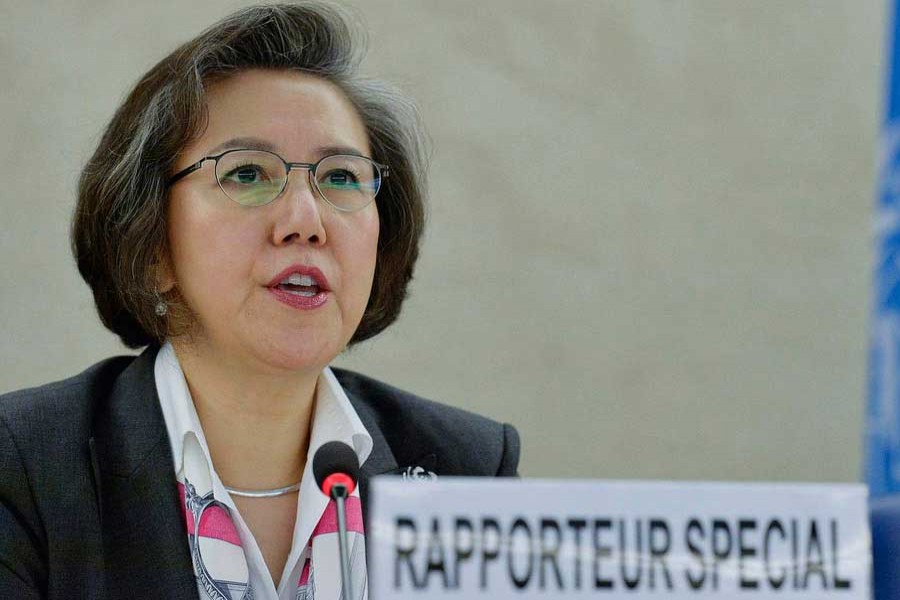UN Special Rapporteur on human rights situation in Myanmar has said that talk of repatriating hundreds of thousands of persecuted Rohingya people anytime soon is premature.
Yanghee Lee also lamented the decades-long cycle of violence perpetuated by authorities against the ethnic minorities in Myanmar, including Rohingya Muslims.
The UN HR expert in an end-of-mission statement following visits to Thailand and Bangladesh in January said what the Myanmar government claims to be the conduct of military or security operations was actually an established pattern of domination, aggression and violations against ethnic groups.
According to her, "Recent reports of attacks against civilians; against homes and places of worship; forcible displacement and relocation; the burning of villages; land grabbing; sexual violence; arbitrary arrests and detention; torture and enforced disappearances; are acts that have been alleged against the military and security forces for generations."
Ms Lee said the atrocities committed against the Rohingya in the aftermath of the 9 October 2016 and 25 August 2017 attacks have been repeatedly witnessed before, albeit not on the same scale of the recent attacks against the Rohingya people, according to a statement UNB received in Dhaka on Thursday from Seoul.
"I was told repeatedly by other ethnic groups I spoke to - be they Kachin, Karen, Karenni, or Shan - that they have suffered the same horrific violations at the hands of the Tatmadaw over several decades and - in the case of some groups - continuing as of today," she said.
"In Thailand,” she added, “representatives from different ethnic groups that I met expressed their concern that as the world's attention is focused on the atrocities in Rakhine State, potential war crimes are being committed in Shan and Kachin State without so much as a murmur of disapproval from the international community."
She also said, "The civilian government has failed to usher in a new era of openness and transparency and is instead persisting with repressive practices of the past."
Ms Lee, who was informed by the Myanmar authorities last year she would no longer be allowed to visit the country on the grounds her reporting was unfair and biased, called on the democratic government to break with the repressive practices of the past, and to allow people who have fled their country to return home - to where they belong.
But she added: "For returns to be ever realised in a way that is voluntary, safe, dignified and sustainable they must be treated as equals - citizens of Myanmar with all the rights that that status affords."
She said while the government of Bangladesh had made it clear that no refugees would be forced back to Myanmar, the international community must pressure Myanmar to create conditions for their return before it is too late.
"This must be done in a principled way that prioritises the need for these people to be recognised as Rohingya and as citizens of Myanmar," she noted.


